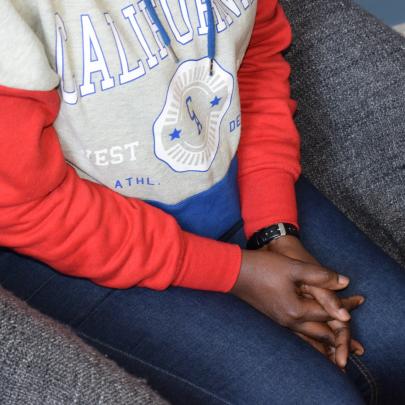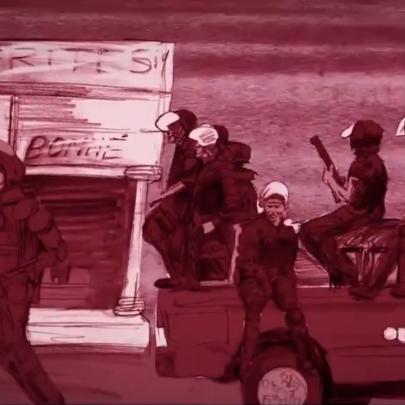“Wish you were here” - reaching the top of the mountain
Today, Amir can feel happy, confident and able to build a life here in the UK – but it has been a challenging climb to this point, and there will be more peaks to ascent.
After I was released from detention and placed in a hostel, I was told that I could talk to a Freedom from Torture therapist if I wasn’t feeling well. But I didn’t want to come. I didn’t want to disclose information about myself, because I’d already done it with the asylum officials. And I was feeling really desperate, miserable and hopeless – just about everything that has a negative connotation to it!
These feelings can make you think you’re not normal; a crazy man in a no man’s land. But, gradually, therapy made me aware of my symptoms and why I was feeling how I was. It gave me the equipment I needed to deal with my feelings. Therapy gives you the tools you need to deal with the problems that occur: you’re able to calm yourself, call somebody, reach these networks of support.
Bearing in mind that you’ve got other peaks to climb: from asylum seeker to refugee; from accommodation to accommodation, everything changing. Therapy changes a negative viewpoint and makes it a positive thing for you to carry on with.
I think I’ve made a great start to my recovery through therapy, I’ve come far. There have been times that I’ve felt that everything we were doing was pointless. But I kept reassuring myself that this is a mountain you’ve climbed, and you’ve got to look back at what you’ve climbed. Bearing in mind that you’ve got other peaks to climb: from asylum seeker to refugee; from accommodation to accommodation, everything changing. Therapy changes a negative viewpoint and makes it a positive thing for you to carry on with.
Last spring I received news that I’ve got my refugee status. But I felt hopeless, pointless, worthless. My self-confidence was knocked down so badly that I couldn’t think that I’d be able to take care of myself; to have a job or any sort of responsibility for that matter. Gradually, with therapy, I realised my own potential.
I started learning guitar, right from the beginning with really small steps, with a beginner course and Youtube videos. Eventually, I joined a full-time music course for production and performance. We put on concerts and my therapist, Isabel, helped me a lot with my self-confidence issues. In the end, I got a distinction for my written work and a merit for my performance. It made me realise, Isabel was right: I can do something I’ve never done before. It made me understand my own potential and build on my self-confidence.
This is a meaningful song to me, I can relate to the lyrics: it’s about being in a cage, about not being able to see something when it’s there, about having lost sensations.
Today, I feel a way I have never felt before: I feel happy. This is unchartered territory for me! Gradually, every day, I get up and have these new feelings. Of having self-value, having self-respect. When you’re depressed and haunted by all these dreams and negative thoughts, all these things coming from the past, you get used to being depressed, used to feeling so miserable that you want to die. For me now, having these new feelings, it’s really strange. I’m sometimes surprised by my own feelings. I think I’ve made a great start to my recovery through therapy, I’ve come far.
My next steps are to continue my recovery and to be able to take care of myself as well as help others – I want to find work
Now I’m training as a teacher, and all these positive steps go hand-in-hand: you know you can be responsible, you can pay bills, you can do this and that. My next steps are to continue my recovery and to be able to take care of myself as well as help others – I want to find work, maybe teaching English like I did back home or interpreting.
I still have a lot of peaks to climb and reach, but I now know I can make something out of my life. Isabel helped me realise that life isn’t about death, it’s about enjoying yourself, it’s about self-respect.




